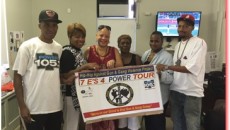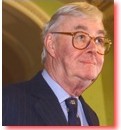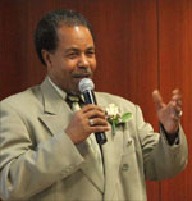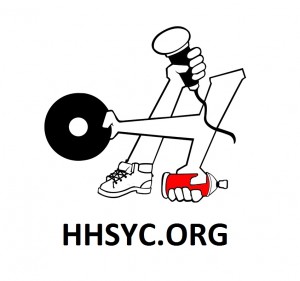As NYCHA Celebrates “Family Day” Let’s Look At The 50 Year Anniversary of the Historic Moynihan Report On Black and Poor Families
Through the Support of the 7 E’S 4 Power Tour and Family Day Events in NYCHA Developments We Can Start The Process of Strengthening The Family Structure in Black, Latino and Poor Communities So We Can Better Educate Our Children And Put An End To Poverty, Drugs, Unemployment, HIV and Gun & Gang Violence

Charles Fisher, HHSYC; Annie Cottonmorris, CCOP; April Simpson, President of Queensbridge Residential Association; Leola Wayne, President, Bland Resident Association; Karen Anglero, President, Latimer Gardens Resident Association; Randy Fisher, HHSYC.
THE MEANING AND MISSION OF “FAMILY DAY” AT NYCHA
The Hip-Hop Summit Youth Council (HHSYC) continues their work to end Gun & Gang Violence, address Black on Black Crime and improve relations between the Police and the Community by partnering with NYPD’s Housing Division and NYCHA residents to support “Family Day” events throughout NYCHA developments this summer. They will also be supported by their Hip-Hop Against Gun & Gang Violence Project and the 7 E’S 4 Power Tour in addition to Power 105.1 the Source Magazine, “The Shark” Daymond John, Hip-Hop Wireless, elected officials and a host of others. To further accomplish this monumental task additional support will come from the newly created My Brother’s Keeper Alliance, an initiative created by President Obama to save young Black and Latino males. During this year’s 4th annual Hip-Hop Against Gun & Gang Violence Week celebration (May 15-21, 2015) the agency received a powerful and “Inspirational Message from the President” in recognition of their outstanding work to improve public safety and the quality of life in poor and disadvantaged communities with a focus on NYCHA Developments.
Family Day is important because in order to empower our youth and save the next generation it all starts with Family Values, Love, Unity and Respect. Due to “Slavery & Racism” the “Black Family Structure” has been compromised and those that have survived the assault must step up to the plate and save the less fortunate. This will not be an easy task, but Blacks must take the lead when it comes to saving their own. As we celebrate the 150th anniversary of the ending of Slavery; the 50th anniversary of the March of Selma; the 50th anniversary of the assassination of President Lincoln and now the 50th anniversary of the groundbreaking Moynihan Report, it is up to the students, parents, community, business, clergy, and political leaders of this generation to study the report and assess how it can be used to improve the “Family Structure” today in Black, Latino and Poor communities.

Charles Fisher, HHSYC; Annie Cottonmorris, CCOP; April Simpson, President of Queensbridge Residential Association; Leola Wayne, President, Bland Resident Association; Karen Anglero, President, Latimer Gardens Resident Association; Randy Fisher, HHSYC.
When it comes to crime in NYCHA and the rest of the city, Blacks & Latinos make up 96% of all homicide victims and are responsible for 97% of all shootings. NYCHA is affected by these numbers and we must work as a team to reduce the violence, but it starts with improving the Family Structure. This year we intend to use Family Day and Hip-Hop as a platform to start a new innovative movement within NYCHA developments working with our partner Reginald Bowman, President of the NYCHA Council of Presidents, to save our youth and young adults while also protecting seniors and children from Gun & Gang Violence.
12 DOORS OF LIFE & DEATH
Poverty and Illiteracy are the root causes of Gun & Gang Violence, as well as a host of other social issues the HHSYC has associated with their “12 Doors of Life & Death.” Let’s take a look at the issues behind each door: Gun & Gang Violence; Black on Black Crime; Police/Community Relations; Employment; the Drop-Out Crisis; Substance Abuse; HIV/AIDS; Healthcare; Affordable Housing; Voter Registration; Cultural & Spiritual Empowerment; and Criminal Justice Reform. To address these issues the agency will use the 7 E’S 4 Power, which include: Education; Employment; Entrepreneurship; Economic Development; Entertainment; Equality and Empowerment. Now, it is the hope of the HHSYC that through the use of the 7 E’S 4 Power they will be able to provide youth, young adults and families living in poor communities with the wisdom and resources to create a safer and better community.
THE MOYNIHAN REPORT ON FAMILY STRUCTURE
As we celebrate Family Day throughout NYCHA Developments this year is going to be very special as we recognize the 50th anniversary of the groundbreaking 1965 release of Daniel Patrick Moynihan’s report “The Negro Family: The Case for National Action” (often referred to as the Moynihan Report). As a general rule, assistant secretaries in the Labor Department do not publish such historical documents, but no one told that to Patrick Moynihan, a sociologist and later U.S. Senator. It focused on the deep roots of black poverty in America and concluded controversially that the relative absence of nuclear families (those having both a father and mother present) would greatly hinder further progress toward economic and political equality.
Moynihan argued that the rise in single-mother families was not due to a lack of jobs but rather to a destructive vein in ghetto culture that could be traced back to slavery and Jim Crow discrimination. Though black sociologist E. Franklin Frazier had already introduced the idea in the 1930s, Moynihan’s argument defied conventional social-science wisdom. As he wrote later, “The work began in the most orthodox setting, the U.S. Department of Labor, to establish at some level of statistical conciseness what ‘everyone knew’: that economic conditions determine social conditions. Whereupon, it turned out that what everyone knew was evidently not so.”
Stated Moynihan “The fundamental problem is that of family structure. The evidence—not final, but powerfully persuasive—is that the Negro family in the urban ghettos is crumbling.” Communities affected faced “massive deterioration of the fabric of society and its institutions.” Such deterioration, should it prove in fact to be occurring, would constitute “the single most important social fact of the U.S. today” ended Moynihan.
Immediately after its release, The Moynihan Report created a lot of excitement and its “Call to Action” was repeated by President Lyndon Johnson within a few months of its publication—again, an uncommon fate for a Labor Department report. At the same time a lot others disputed his findings challenging every word. Moynihan was accused of arguing that low-income Black Families were simply causing their own problems and of trying to undermine the civil rights movement. As outlined in the report, Moynihan pointed the finger to the long and ugly legacy of “Slavery & Racism.” Both undermined the leadership role of Black men in their families and community. The point of the report was not to assign blame but to focus on the problems within the Black and Poor Family Structure where Moynihan described how the unemployment rates, welfare application rates and the number of unmarried mothers appeared to contribute to the Black Family problem.
RACISM, POVERTY AND DR. KING
The facts about the collapse of the American Family amongst those living in poor and disadvantaged communities was the focus of the Moynihan Report. He saw the danger a half a century ago and warned America of the detrimental affects their policies would have if the problem was not addressed. He felt that race was at the core of the problem and that without a strong and stable family the American Dream would never become a reality for most poor citizens. President Obama has asked this country to have a conversation on race, but our political and community leaders have yet to recognize the “Call to Action.” Maybe the killing of 9 people in a church in South Carolina by a supporter of the racist policies associated with slavery and the Confederate Flag, along with a rash of killings of Blacks by law enforcement agencies, could be enough to finally start a long overdue conversation on race that could help heal this nation.
As elected officials debate the issue we can never overlook the heroic efforts of many single mothers going the extra mile to help their children avert the dangers of dropping out of school, crime, violence and gang recruitment. The family is the foundation within every cultural society and is essential for proper social human development. It is hard to imagine how much is being done by our politicians to address centuries of social and economic inequality. But the first step toward seriously taking them on must be a strong commitment to rebuild the family structure in Black, Latino and poor communities. To achieve this task poverty and academic failure have to be on top of the list.
In his speech on April 4, 1967 at Riverside Church in New York City, Dr. King connected the war in Vietnam with the “war on poverty” when he said “and you may not know it, my friends, but it is estimated that we spend $500,000 to kill each enemy soldier, while we spend only $53 for each person classified as poor, and much of that $53 goes for salaries to people that are not poor. So I was increasingly compelled to see the war as an enemy of the poor, and attack it as such.” The next year, King started the Poor People’s Campaign to address the lack of support for the “war on poverty” and to “demand a check” for suffering African-Americans, which was carried on briefly after his death with the construction and maintenance of an encampment, Resurrection City, for over six weeks. It appears that we need to revisit Dr. King’s mission and use Family Day in NYCHA Developments, along with the findings outlined in the Moynihan Report, as a platform to finally address the hardcore issues that have devastated the “Family Structure” in Black, Latino and Poor communities so the next generation will have a much better chance of achieving the American Dream.
FINAL WORD FROM MOYNIHAN
In 2002, a year before Moynihan died, he was a keynote speaker at a conference of experts concerning international trends affecting family life. His message was pessimistic. Cohabitation, he pointed out, was “neither stable nor long-term.” The rise in fatherless families deeply disadvantaged children. It still remained risky for white writers to highlight black family problems. And social science seemed unable to develop a national family policy. “We are nowhere near a general theory of family change,” he asserted. “And there we shall leave it, the question still standing: who indeed can tell us what happened to the American family?”
LINK TO THE FULL REPORT—
http://web.stanford.edu/~mrosenfe/Moynihan%27s%20The%20Negro%20Family.pdf
SPECIAL SHOT OUTS TO THOSE ON THE FRONT LINE GETTING THE JOB DONE FOR NYCHA RESIDENTS AND THE SURROUNDING COMMUNITIES: Reginald Bowman, President, NYCHA Resident President: Deidra Gilliard, Vice-President of Programs, NYCHA; Housing Cheif James A. Secreto, Lieutenant Cleare and Det. Redric, all who are doing an outstanding job to protect, serve and empower NYCHA residents.
We also want to thank all NYCHA Presidents supporting the Family Day Agenda, as we role up our sleeves to improve the quality of life in NYCHA, as well as the National Night Out Against Crime on August 4, 2015, where we will be hosting the Night Out Against Crime Talent Search (NO-ACTS) throughout NYC and the Tri-State area. So if you have some talent it’s your Time 2 Shine. So to get info on the initiative or register hit us up at: randykfisher@gmail.com or go to www.hhsyc.org and click on the banner on the front page.
For further info on FAMILY DAY EVENTS, as well as how you can join the “Raptivism Team” to address a host of needs to improve the quality of life in NYCHA DEVELOPMENTS, hit us up at: RandyKFisher@gmail.com.
Posted by Charles Fisher and Randy Fisher (Twitter / Facebook / Instagram @HHSYC).
.
.














